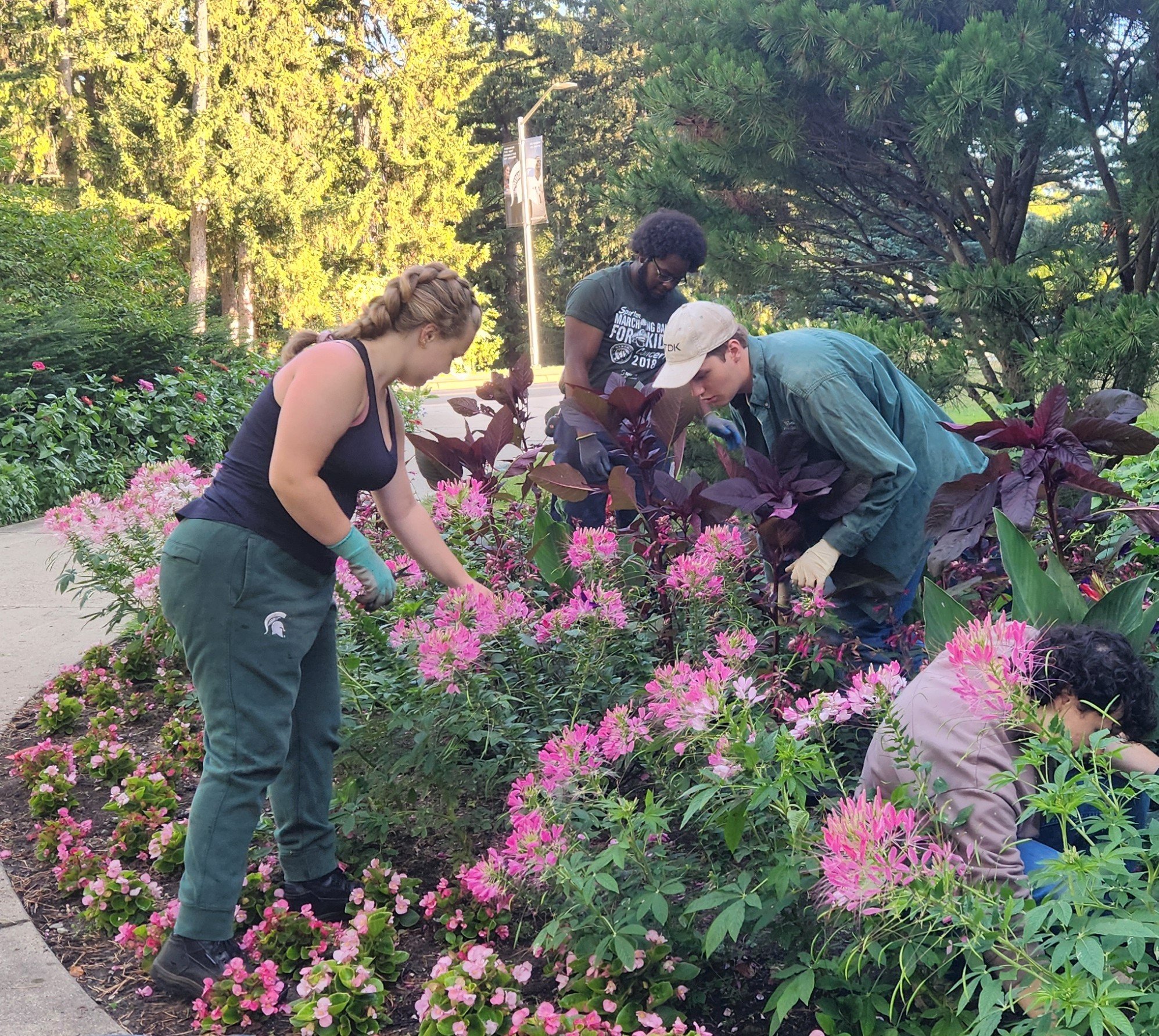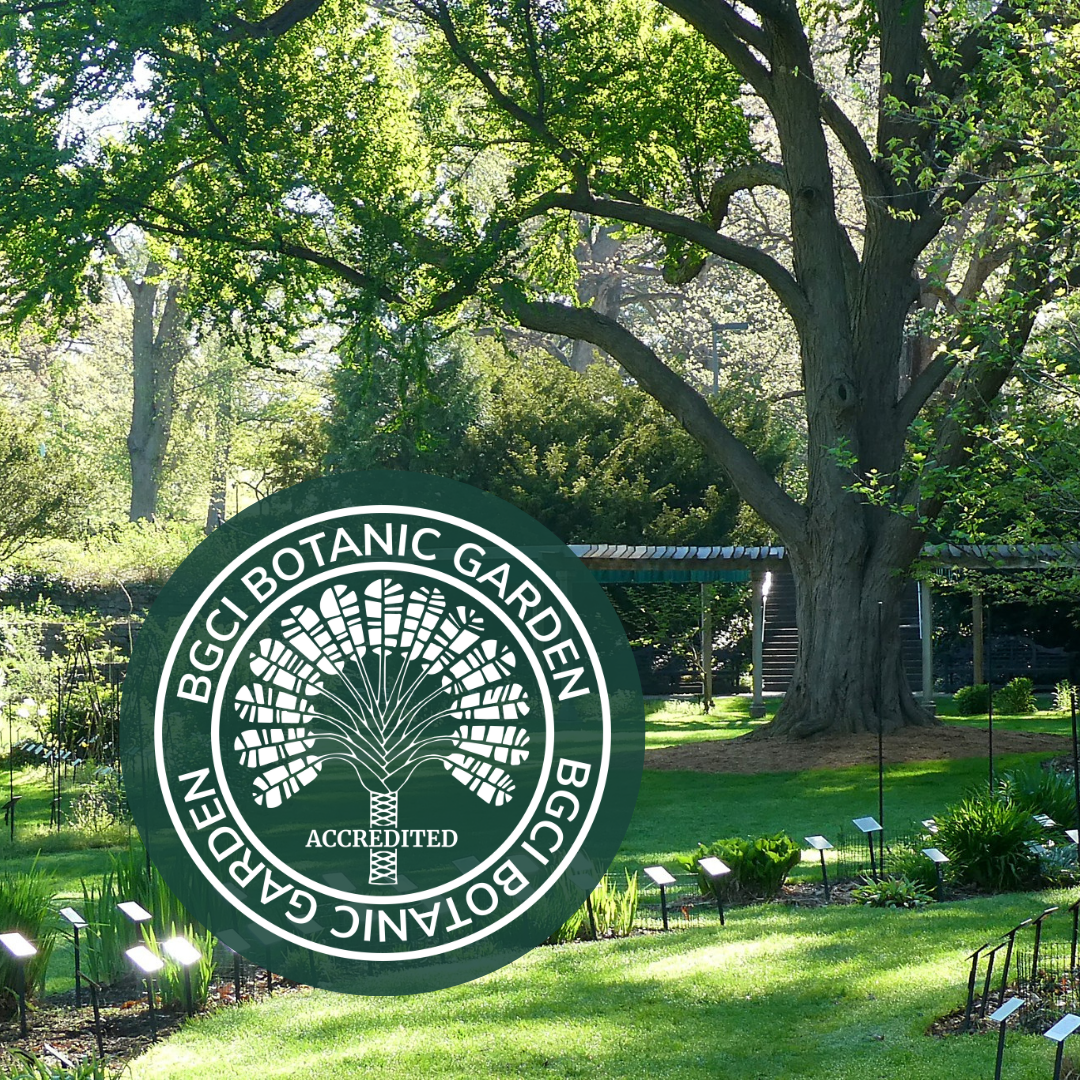
Beal Botanical Garden and Campus Arboretum illuminates the interconnectedness of people, plants, and place through learning, research, and stewardship.
We're Hiring Summer Garden Scholars!
The Beal Scholars program is a paid internship open to current MSU undergraduate students from any discipline. Beal Scholars are mentored positions, with selected individuals working closely with our staff to implement a chosen project that aims to benefit the garden by contributing to our mission and goals.
We are looking for several candidates for Garden Scholars. These positions work directly in the garden, maintaining our plant collections and our beautiful space. These positions require working outside in a range of weather conditions and temperatures. No prior gardening or horticultural experience is required, just enthusiasm and willingness to learn how to work with plants.
Applications open February 1, 2026 and close at 12:00 a.m. (midnight) on February 15, 2026.
Beal Botanical Garden earns prestigious international accreditation
We are proud to announce that the garden has earned accreditation from Botanic Gardens Conservation International, or BGCI. With this accreditation, we join an accomplished group of just over 100 international botanical gardens that have demonstrated success in conservation of plant species, inspiring people, sharing knowledge, and addressing global challenges. We are the first and only BGCI-accredited garden in Michigan. This is also the first time the garden has been accredited since its founding.
People, Plants, Place: Growing Beal Botanical Garden's Collection Together
Our collection is a living laboratory of over 2,000 plants driving discoveries that bring communities together. Hear from some of the voices whose projects are showing how plants play a vital role in understanding our world and one another.
This beautiful video was created by Anthony Valli, Arts MSU.

The Earthseed Project: Spartans Bringing Humanities and Horticulture Together
Michigan State University has joined the Georgia Institute of Technology in The Earthseed Project, a humanities-centered research initiative that uses Afrofuturist literature to connect horticulture, climate resilience, and food sustainability knowledge and practices. As part of this project, garden staff are working with the College of Arts and Letters' Dr. Kinitra Brooks to create a Conjure Garden that will feature plants used in spiritual and medicinal practices passed down through generations of Black Southern and Caribbean women and enslaved people.

Land Acknowledgment
We collectively acknowledge that Michigan State University occupies the ancestral, traditional, and contemporary Lands of the Anishinaabeg—Three Fires Confederacy of Ojibwe, Odawa, and Potawatomi peoples. In particular, the University resides on Land ceded in the 1819 Treaty of Saginaw. We recognize, support, and advocate for the sovereignty of Michigan’s 12 federally recognized Indian nations, for historic Indigenous communities in Michigan, for Indigenous individuals and communities who live here now, and for those who were forcibly removed from their Homelands. By offering this Land Acknowledgement, we affirm Indigenous sovereignty and will work to hold Michigan State University more accountable to the needs of American Indian and Indigenous peoples.

